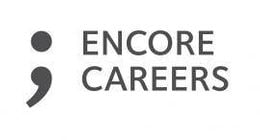Don't Be a Job Hunter, Become a Job Developer
Job skill strengths can create a new and fulfilling career
If you’re having trouble finding your encore career, consider shifting your focus from filling jobs advertised by others to designing a job tailored to your unique strengths.
At a career development conference in 2009, Denise Bissonnette completely changed my view of career development. She said professionals in the work force need to stop thinking of the job search as merely seeing what is available. Instead, we need to bring an entrepreneurial spirit to our search, creating "employment proposals" while keeping an eye on emerging social trends and businesses.
Employment proposals can work for all kinds of career paths, from bookkeeping and technology to retail, service and construction. Denise told stories of clients who proposed creating a nighttime parking-lot security position at a hotel, a site preparation and cleanup position with a paint crew, and a range of other examples. All were people who said, "Here is a need that your company seems to have, here are the skills that I can use to fill that need and here is how it will give you a competitive advantage."
Job hunters vs. job developers
Some of the characteristics that define the beliefs and actions of the job hunter and the job developer are:
Job hunters:
- Look only for what is available
- Think successful job searching is shooting resumes off into cyberspace
- Believe in the power of anonymity
- Believe in the "career caretaker"
Job developers:
- Realize the work world is not fully formed
- Cultivate and grow
- Go online to get offline
- Believe in the power of connection
- Are self-leaders
Companies and organizations need sharp-eyed professionals to step up and help create the workplace of the future. Entrepreneurism and innovation are not solely the domain of the startups. Everyone has the ability to look at the workplace as it already exists and say, "I see a need here that can easily be filled if only ..."
Creating the employment proposal that Denise Bissonnette discusses in her presentation sounds a lot like what I called "creating intentional opportunities" when I worked for Idealist.org.
Be prepared
Know yourself and your set of skills; know the facts about the organization that you'd like to approach (including their strengths, areas of need and human and fiscal resource constraints); then pitch them an idea heavy on your own initiative, heavy on deliverables that will have a long-term benefit to the organization and very light on staff time needed to manage you and your project. In other words, how can you give the organization as much as possible without asking too much of them in return?
This doesn’t mean you stop looking for what is available. You should put equal effort into applying for pre-existing jobs and creating the relationships where you can foster your ideal encore career.
Steven Joiner is a career transitions expert and former director of the Career Transitions Program at Idealist.org. He has contributed to The New York Times, NPR’s Marketplace and a range of local media. He is the author of The Idealist Guide to Nonprofit Careers for Sector Switchers and is a founder of the 21st Century Worklife project.
This article was originally published by Encore.org on Dec 6, 2010.


